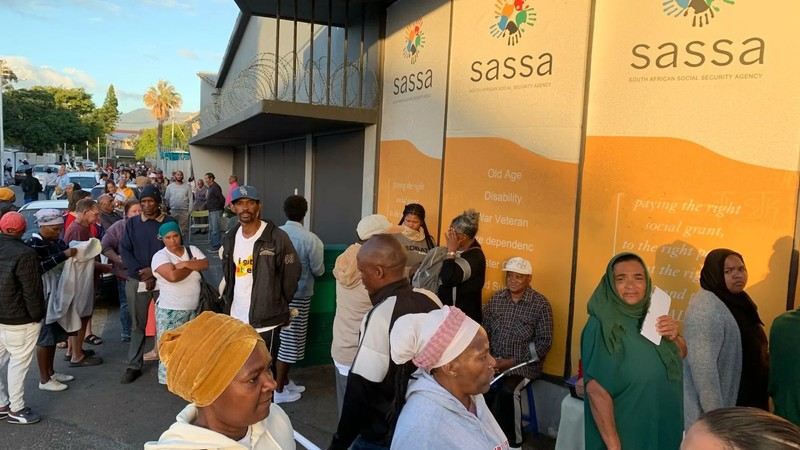Social relief of distress, or social grants, is a key part of South Africa’s welfare system; however, recent data indicates that its role is increasingly strained, raising concerns about sustainability, economic growth, and social cohesion.
According to the latest General Household Survey released by Statistics South Africa (Stats SA), an unprecedented 40.1% of the population – approximately 25.4 million individuals-now rely on social grants.
This marks a significant increase from previous years and reflects a steady rise in dependence, particularly amid persistent unemployment and economic challenges.
Risenga Maluleke, Statistician-General of South Africa, noted that the country’s official unemployment rate hit 32.9% in the first quarter of 2025.
Such figures highlight the stark depth of economic hardship many face, with social grants serving as a vital safety net without sufficient employment opportunities.
Paul Maritz, Director at Free SA, a foundation advocating for rights, equality, and systemic reform, highlighted the gravity of this dependence.
“The growing reliance on social grants – now affecting over 25 million people — highlights deep socio-economic challenges and the urgent need for structural change,” he explained.
“Our proposed Power to the People Amendment aims to address these issues by reducing waste, devolving policing, and breaking monopolies that hinder economic opportunity.”
Maritz warned that “sustained dependence on grants without parallel investment in job creation risks entrenching a welfare economy that stifles individual potential and hampers long-term growth.”
He warned that if current trends persist, South Africa’s economy could face stagnation, shrinking tax bases, and rising inequality-all threatening social stability.
The fiscal burden of social grants is significant. In 2011, the South African government allocated around 3.5% of GDP to social assistance, which has grown over the years.
The Centre for Global Development estimated that expenditure on social grants, particularly the Child Support Grant (CSG), reached nearly ZAR31 billion (approximately US$4.2 billion) in 2010-11.
Instead, they argued that they serve as a necessary-but insufficient-measure to support those unable to provide for themselves.
“While grants have helped improve food security, children’s well-being, and school attendance,” Maritz warned that they are not a long-term solution to poverty.
“Overdependence can distort labor markets. When social assistance becomes a substitute for employment, it can disincentivize active job-seeking and skills development.
“Countries with more developed economies often implement prerequisites or conditions tied to grants, encouraging recipients to pursue upskilling or community participation.”
He added that the current approach risks creating a stagnating workforce and reducing overall productivity in South Africa, thereby hindering economic growth and perpetuating inequality.
“Ironically, the system designed to reduce inequality may inadvertently reinforce it if not paired with empowerment strategies.
“Without access to meaningful employment, quality education, and secure communities, social mobility remains elusive for many beneficiaries.”
Furthermore, dependence on grants without addressing the root causes-unemployment, corruption, and inefficient public services-could erode trust in institutions.
Maritz warned that “a society where millions feel trapped and unheard is inherently unstable,” stressing the need for comprehensive reforms.
Free SA’s “Power to the People Amendment” seeks to tackle these issues by promoting decentralisation, reducing waste, and opening up economic opportunities.
Maritz stresses that “without these reforms, the grant system risks collapsing under its weight, undermining the aspirations of millions.”
Critics also caution against viewing social grants as a tool for economic stimulation.
Ann Bernstein, Head of the Centre for Development and Enterprise, argued that “expanding grants will not stimulate growth and may hinder it if done without spending cuts elsewhere.”
She stated that grants are vital anti-poverty tools but are not a substitute for economic development strategies.
Politics
